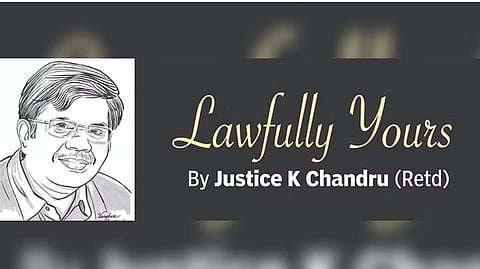

CHENNAI: Approval of dismissal, before or after, have same legal status
The clarification I would like to seek relates to Section 33(1)(a) and 33(1)(b) of the Industrial Disputes Act. Section 33: “Conditions of service, etc., to remain unchanged under certain circumstances during pendency of proceedings” 33. (1) During the pendency of conciliation proceeding... no employer shall, (a) in regard to any matter connected with the dispute, alter, to the prejudice of the workmen concerned, the conditions of service applicable to them immediately before the commencement of the such proceeding; ‘OR’ (b) for any misconduct connected with the dispute, discharge or punish, whether by dismissal or otherwise, any workmen concerned... What is the import of ‘OR’ here? Is it used to bring in, discharge or punish any workmen concerned also under the purview of 33(1)(a)? Some advocates maintain termination of employment during the pendency of a wage dispute does not come under Section 33(1)(a), as it deals with alteration of conditions of service during the pendency of dispute, and as such managements are free to dismiss the workman who raised the dispute and escape the ban imposed by Section 33. Please clarify. — S Madhavan, Madipakkam
In any statute, no words are irrelevant. So far as terminations are concerned during the pendency of the disputes, they are dealt with by sections 33(1)(b) and 33(2)(b) alone. The difference in the first, the termination is connected with the dispute; and in the second, the termination is unconnected with the dispute. Though in the second case, the same does not mention about prior permission before termination a constitution bench in the Jaipur Zilla Sahakari Bhoomi Vikas Bank case has held that provision is also mandatory. Therefore, prior approval and post-approval in cases of dismissal have the same legal status.
Shutting of shops at night also meant to protect health of workers
Nightlife is not about partying and chilling alone. It also involves other social and cultural ‘rights’. However, authorities seem to be less keen on ensuring these rights to Chennaiites. Looks like denizens of this metro city have no right to shop, eat out or go to the cinema, among other cultural activities, in the night hours. Can public and business establishments be punished for the inability of the State to ensure law once dark falls? — Kathirvelu, Ambattur
Shops are closed not only in the interest of the consumers but also to protect the health of the workers. No one has an absolute right in such matters. At times, exemptions are granted to shops in the matter of working hours. Already Madras High Court has set aside the ban on the night shift for women under the Factories Act (2002). The State didn’t go on appeal. Time may not be far when courts may strike down working hours of shops and public entertainment places in these days of liberalisation.
Visit news.dtnext.in to explore our interactive epaper!
Download the DT Next app for more exciting features!
Click here for iOS
Click here for Android